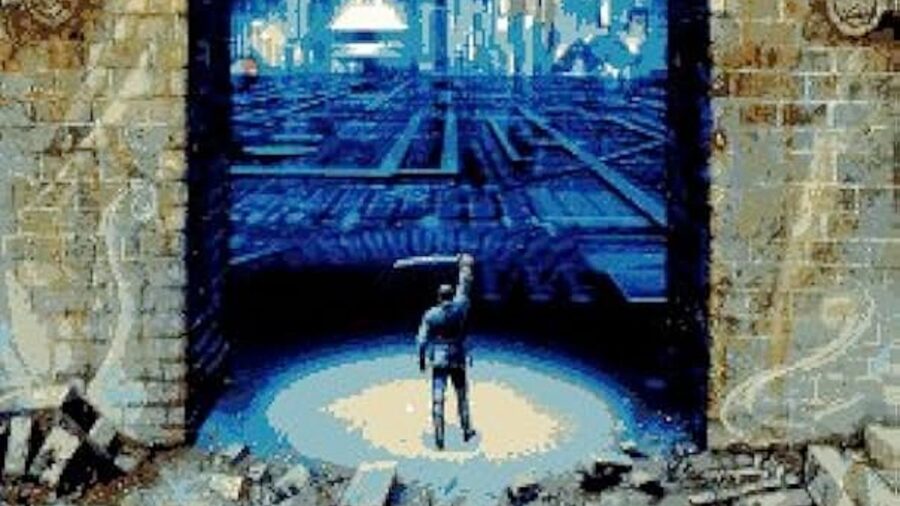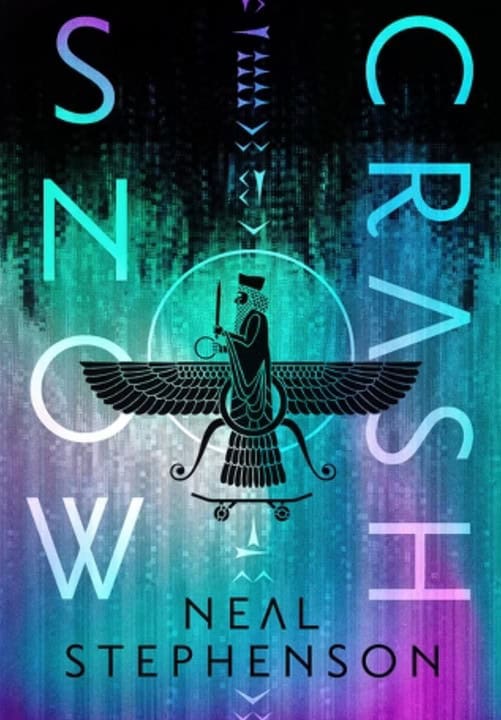The 90s Sci-Fi Novel That Shaped The Internet, No One Can Adapt It

From the beginning, science fiction has been the domain of futurists, gifted creators who weave stories that are not about the world today but the world of tomorrow. Star Trek’s influence on the technology of today is well-documented by this point, but lost among the internet users of today is how a 90s novel envisioned the future World Wide Web. Snow Crash, by Neal Stephenson, popularized internet slang used today, Facebook’s Metaverse, Xbox, Google Earth, and even Wikipedia, making it one of the most important cyberpunk books of all time.
A Founding Text Of Cyberpunk

Snow Crash follows Hiro, your standard cyberpunk hacker who makes ends meet as a delivery driver, and you can add Doordash and UberEats to the list of today’s technologies that exist, with a disturbing level of accuracy, in Stephenson’s story. After receiving the “Snow Crash” virus, which manifests itself as visible static in the Metaverse, not the Facebook experiment, Stephenson really did call his virtual world of avatars the Metaverse in 1992; he’s sucked into a journey involving Sumeria, conspiracies, mega-corporations, and the power of language.
The novel is dense, and Stephenson’s writing style can take some getting used to, but Snow Crash is considered the defining cyberpunk novel for a very good reason. It’s partly in the language he uses, with terms today like Metaverse becoming common, but also, he popularized the use of “avatar” to describe someone’s character inside the virtual world. Today, we think nothing of calling digital characters avatars, and the usage of adaptable “Smartwheels” foresaw a future filled with random smart technology, like a toaster.
In fact, most of the appeal of Snow Crash is in how Stephenson envisioned the future as a capitalistic hellscape. That’s standard for the cyberpunk settings of different media that predate the novel, from Blade Runner and Shadowrun to Cyberpunk (the table-top game that was adapted as Cyberpunk 2077) and even the novels contemporary, Marvel’s 2099 comics. The difference, though, is how Stephenson accurately predicted the internet of 2024, right down to putting a price on public information.
Envisioning The Future Of Today

The Central Intelligence Corporation (CIC), which came about when the CIA and the Library of Congress merged, runs the Library, a private collection of information that people are paid to contribute to, and in practice, this is the very common wiki-style of most online databases today, from Wikipedia to Fandom. Another piece of CIC tech is “Earth,” a digital representation of the planet that Google technicians even cited as an influence on the development of Google Earth. Snow Crash’s Metaverse, though quaint today in a world with Smartphones, helped people envision an interconnected 3D digital world, including the good and the bad, which ended up leading to Second Life, the Metaverse, and Xbox Live (Microsoft executive J. Allard considered the novel to be required reading.)
Neal Stephenson’s vision of the future has become so disturbingly accurate that he’s embarked on a second career as a futurist, consulting with the same type of mega-corporations in reality that dominated the world of Snow Crash. Not all of his tech has become real, though. We’re still waiting on portable railguns and the robotic dogs, but Boston Dynamics seems to have a good handle on the latter.
Snow Crash may have envisioned and helped shape the modern internet, but perhaps because of how the novel relies so heavily on language, it has yet to be adapted by any studio. The first attempt at bringing the novel to life was in 1996, but that never left pre-production. In 2017, Amazon wanted to make it a streaming series for Prime Video, but again, nothing came of it, and the most recent attempt, by HBO, was abandoned in 2021.
Many Have Tried, None Have Adapted The Story
Cyberpunk novels are similar to their retro-futuristic steampunk counterparts, which, yes, was named as a tongue-in-cheek response to its futuristic sibling, in that they are, like Snow Crash, so wildly inventive and creative that it’s hard for Hollywood to do them justice. Blade Runner is still one of the best in the genre, but even that is a cult classic and not a blockbuster, making The Matrix franchise the most successful of the genre. Netflix’s Altered Carbon is a modern, big-budget cyberpunk series based on a fantastic novel by Richard K. Morgan, but even that only had enough juice for one amazing season before budget issues kneecapped the second season.
It’s over 30 years old, but Snow Crash remains relevant today, perhaps even more so given you can order from a modern Delivernator while streaming music on your phone while reading about a futuristic dystopia. The Sumerian subplot, while relevant to the story and something I found fascinating, might not be everyone’s cup of tea, but it’s still worth your time. Of course, the problem with reading Stephenson’s instant sci-fi classic is that you’ll look around and realize we’re living in that futuristic dystopia right now.













Login with Google